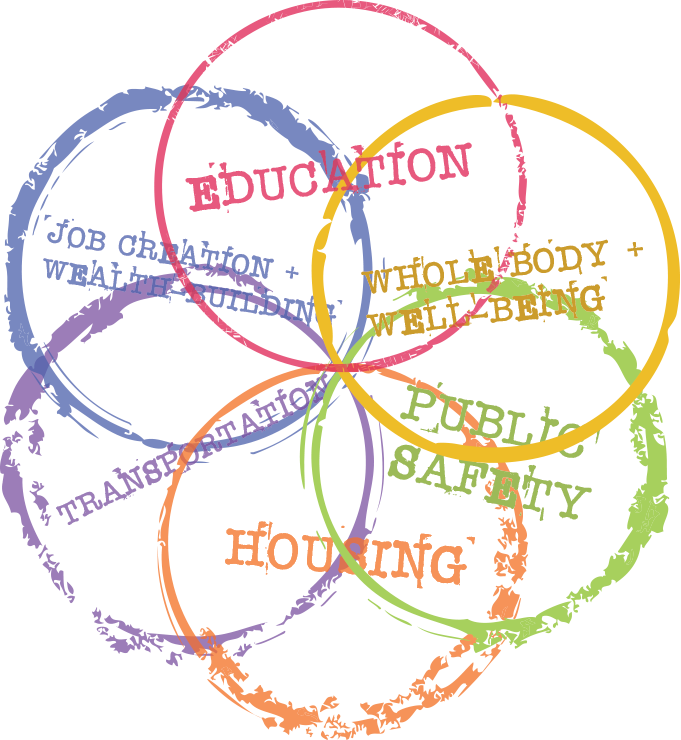Safe, Stable Housing is Out of Reach for Too Many in RVA
RTD Op-Ed by Adrienne Cole Johnson, Heather Crislip, Lillie A. Estes, and Alex Wagaman
Published in the Richmond-Times Dispatch on August 12, 2017
For some people in the greater Richmond community, choosing where you live is about location, asset-building, property values, and school districts. There is a quiet luxury of choosing safety and using housing as a way to leverage resources and develop wealth.
However, there are many Richmond residents who are subjected to unjust housing laws and practices — even while working hard to create a different reality for their families.
Sadly, unjust practices are nothing new, as the Richmond region has long suffered from the repercussions of its past.
Beginning in the 1930s, federal housing policy promoted segregation through incentivizing the growth of white, middle-class suburban areas.
Entire neighborhoods were denied credit — or red-lined as the act came to be known due to the red line that realtors, insurance agents, and mortgage lenders would draw around African American neighborhoods.
In essence, a dual track housing policy greatly influenced the current state of our region today.
Federal investment and incentives spawned the flight of whites to the suburbs while simultaneously concentrating poor minorities in the inner city.
These policies have led to inter-generational, concentrated poverty in some of the oldest neighborhoods of the region, while increasingly remote neighborhoods, available only to those with the necessary means, continue to blossom and flourish.
***
Yet it is not just the historical legacy that has established injustice. It is the choices we continue to make today — in our policies and practices.
The National Low Income Housing Coalition estimates that for every 10 extremely low-income families and households looking for housing in Virginia there are only three affordable rental properties available.
In Virginia, someone would have to work 128 hours per week at minimum wage to afford a two-bedroom rental home at fair market rent. And in Virginia, landlords have many more rights and protections than tenants.
Without addressing the issue of affordable housing stock and wages that people can live on, we are not addressing community justice. Without addressing the issue of choice and control in where you live, we are not addressing community justice.
As housing is often a determinant of education and social connections, it is so much more than where you live. It is intimately connected to most aspects of our individual and family well-being, and our ability to live into the potential that each one of us has.
Is it any surprise that the Richmond neighborhoods that were red-lined are now where we find our food deserts? Is it any surprise that these same neighborhoods have been economically underdeveloped and physically isolated from accessing the resources necessary for survival, including employment opportunities?
Is it any surprise that the Richmond neighborhoods that were red-lined are where the public schools are located that don’t have the basic facilities and supplies to educate their students?
***
Few people really understand the broad impact that housing instability has on your life until they have experienced it directly. Moving toward justice will require us to put the voices and solutions of those most directly affected at the forefront of change efforts.
Far too often, decisions are made and directions are followed without authentic engagement of the population most affected. True community engagement is necessary for sustainable and transformative growth.
Moving toward justice will require us to look back at our history and recognize its connection to the Richmond of today. Moving toward justice will also require us to make intentional choices — by design — to invest in dismantling what our history has created.
Housing as a human right should be more than just a mantra. With housing being an intricate part of social injustice it is imperative that we keep it at the helm of our conversations and a priority for our actions. We must also use a lens of community justice as we begin to purposefully address housing inequities with a primary goal of co-visioning and co-creating inclusive approaches with disaffected communities.
We have talked for far too long about unjust housing practices without truly investing the proper time, talent, and energy into shifting the reality for all citizens. Let us do more to level the stock of affordable and safe housing for all citizens, all while enriching the lives of all citizens of our evolving city.
***
Our community justice film premier screening on housing is this month! Please get engaged and involved and join us Thursday, August 17 at the University of Richmond Downtown (626 E Broad Street, Suite 100, Richmond 23219) beginning at 6 p.m. and ending at 8:30 p.m. We will move beyond the big screen into open, lively, and real conversation — all with the aim of effective community justice practices in our city.
